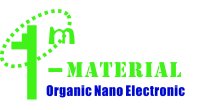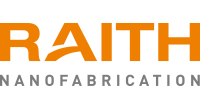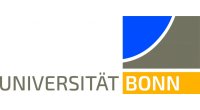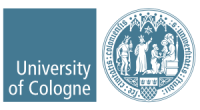Invited Speakers
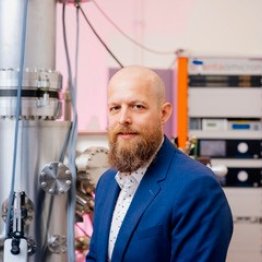
Prof. Dr. Felix Fischer
Prof. Dr. Felix Fischer

Prof. Fischer holds an appointment as Full Professor in the Department of Chemistry at the University of California Berkeley, as Faculty Scientist in the Materials Sciences Division at Lawrence Berkeley National Laboratory, as Research Group Leader at the Kavli Energy Nanosciences Institute at the University of California Berkeley and Lawrence Berkeley National Laboratory, and as Research Group Leader at the Bakar Institute of Digital Materials for the Planet. Prof. Fischer received his Ph.D. in Physical Organic Chemistry in the group of Prof. F. Diederich at the Swiss Federal Institute of Technology, Zurich. Before joining the faculty at UC Berkeley in 2011 Fischer held a position as Leopoldina Postdoctoral Fellow in the Department of Chemistry at Columbia University, New York. Among his honors are selection as recipient of the Journal of Physical Organic Chemistry Award for Early Excellence (2017), the Carl Duisberg Memorial Prize of the German Chemical Society (2016), the NSF Early Career Award (2015), the Packard Fellowship for Science and Engineering (2013), the Bakar Fellowship (2013), the DOE Early Career Award (2012), the ACS PRF Doctoral New Investigator Award (2012), the Thieme Chemistry Journals Award (2011), the German National Academy of Sciences Leopoldina Postdoctoral Fellowship (2008), and the German Research Foundation Postdoctoral Fellowship (2008). His research interests focus on the rational design, deterministic assembly, and detailed investigation of the exotic physical phenomena emerging from quantum confinement effects in nanomaterials.
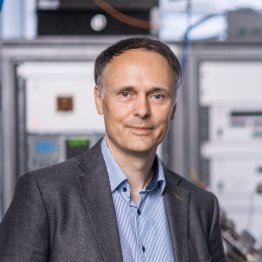
Prof. Dr. J. Michael Gottfried
Professor of Physical Chemistry at Philipps-Universität Marburg
Prof. Dr. J. Michael Gottfried

Professor of Physical Chemistry at Philipps-Universität Marburg
J. Michael Gottfried is a full professor of Physical Chemistry at the University of Marburg, Germany. His current research interests encompass on-surface synthesis, cyclic nanographenes, synthetic carbon allotropes, non-benzenoid aromatic systems, and porphyrin-based materials, which are generated and studied using advanced surface-science techniques. He received his PhD degree in 2003 from Free University of Berlin, Germany. After postdoctoral research at the University of Washington, USA, and a habilitation at the University of Erlangen-Nuremberg, Germany, he was appointed to his current position in 2011. The held a guest professorship at the University of Science and Technology of China and received the International Partnership Award for Young Scientists of the Chinese Academy of Sciences, the SCS Lectureship of the Swiss Chemical Society, and an ERC Synergy Grant, among other awards. He is the vice-spokesperson of CRC 1083 “Structure and Dynamics of Internal Interfaces”.
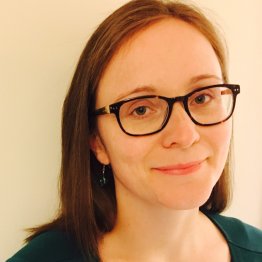
Prof. Dr. Kim Jelfs
Professor of Computational Materials Chemistry at the Department of Chemistry at Imperial College London
Prof. Dr. Kim Jelfs

Professor of Computational Materials Chemistry at the Department of Chemistry at Imperial College London
Kim completed her PhD in Computational Chemistry at UCL (UK) in 2010, studying the crystal growth of zeolitic materials. She worked as a post-doctoral researcher conducting simulations across the experimental groups at the University of Liverpool, before beginning her independent research at Imperial College in 2013. She was awarded a 2018 Royal Society of Chemistry Harrison-Meldola Memorial Prize, a 2019 Philip Leverhulme Prize in Chemistry and was the 2022 Blavatnik Awards Laureate in Chemistry. Kim holds an European Research Council Starting Grant and is an Associate Editor of Chemical Communications.
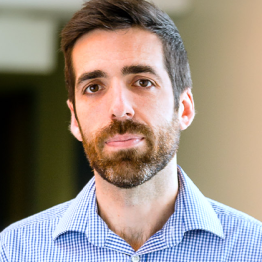
Prof. Dr. Stephane Kena-Cohen
Prof. Dr. Stephane Kena-Cohen

Stéphane Kéna-Cohen is an Associate Professor at Polytechnique Montréal since 2014 and the Canada Research Chair in Light-Matter Photonics. Prior to that, he held a prestigious Junior Research Fellowship in at Imperial College London (Physics) and graduated with a PhD in Electrical Engineering from Princeton University in 2010. His research focusses on optoelectronic devices based on molecular and 2D materials and on better understanding (and controlling) excited state dynamics in such materials. He is well-known for his demonstration of the first exciton-polariton lasers using organic semiconductors and recently demonstrated record external quantum efficiencies in near-infrared and mid-infrared light-emitting diodes based on molecular and 2D materials.

Prof. Dr. Anna Köhler
Prof. Dr. Anna Köhler

Anna Köhler, FRSC, holds the Chair of Soft Matter Optoelectronics at the University of Bayreuth. Her research is concerned with photophysical processes in organic semiconductors, focusing in particular on the processes of energy and charge transfer in singlet and triplet excited states, the exciton dissociation mechanism and intermolecular and interchain interactions.
She received her PhD in 1996 from the University of Cambridge, UK. After Research Fellowships given by Peterhouse, Cambridge and the Royal Society she moved to Germany for professorships, first in 2003 to Potsdam and in 2007 to Bayreuth.
She currently serves as Director of the Bayreuth Centre of International Excellence “Alexander von Humboldt” and coordinates an international Research Training Group “Optical Excitations in organic and inorganic semiconductors (OPTEXC)” between the University of Bayreuth, The University of Melbourne and Monash University. She also leads a European Doctoral Training Network “TADFsolution – addressing the challenges of high-performance solution-processed OLEDs using sustainable materials". In 2020 she was awarded the Max-Born-Prize, given jointly by the German Physical Society and the Institute of Physics, UK, and 2022 she was elected member of the Bayrische Akademie der Wissenschaften.

Prof. Dr. Angelika Kühnle
Prof. Dr. Angelika Kühnle

Angelika Kühnle studied physics at the Free University Berlin (Germany). After finishing her Master's thesis in the group of Karl-Heinz Rieder, she joined the group of Flemming Besenbacher at Aarhus University (Denmark), where she did her PhD using scanning tunneling microscopy at low temperatures.
In 2003, she joined the chemical company BASF, being responsible for a research laboratory within polymer physics. In 2005, she was awarded an Emmy Noether grant of the German Research Foundation (DFG). In 2009, she became full professor at Mainz University. Since 2017, she is full professor for physical chemistry at Bielefeld University.
Her research interest focuses on exploring dynamics and structure formation of organic molecules on insulator surfaces, including molecular self-assembly and on-surface synthesis. An important aspect is elucidating fundamental processes at surfaces and interfaces of dielectric materials. The work comprises method development for high-resolution imaging both in ultra-high vacuum and at the solid-liquid interface.
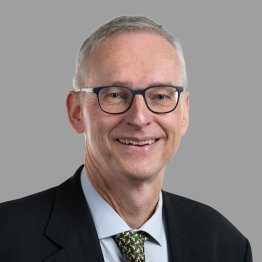
Prof. Dr. Karl Leo
Professor of Optoelectronics at TU Dresden
Prof. Dr. Karl Leo

Professor of Optoelectronics at TU Dresden
Head of the Institute of Applied Physics and director of the interdisciplinary center "Dresden Integrated Center for Applied Physics and Photonic Materials (DC IAPP)" at TU Dresden.
Karl Leo obtained the Diplomphysiker degree from the University of Freiburg in 1985, working with Adolf Goetzberger at the Fraunhofer- Institut für Solare Energiesysteme. In 1988, he obtained the PhD degree from the University of Stuttgart for a PhD thesis performed at the Max- Planck-Institut für Festkörperforschung in Stuttgart under supervision of Hans Queisser. From 1989 to 1991, he was postdoc at AT&T Bell Laboratories in Holmdel, NJ, U.S.A. From 1991 to 1993, he was with the Rheinisch-Westfälische Technische Hochschule (RWTH) in Aachen, Germany.
Since 1993, he is full professor of optoelectronics at the Technische Universität Dresden. His main interests are novel semiconductor systems like semiconducting organic thin films; with special emphasis to understand basics device principles and the optical response. His work was recognized by a number of awards, including: Otto-Hahn-Medaille (1989), Bennigsen-Förder-Preis (1991), Leibniz-Award (2002), award of the Berlin-Brandenburg Academy (2002), Manfred-von-Ardenne-Preis (2006), Zukunftspreis of the German president (2011), Rudolf-Jäckel- Prize (2012), Dr. techn. h.c. of the University of Southern Denmark (2013), Technology Transfer Prize of the DPG (2016), and the Lifetime Inventor Award of the European Patent Office (2021). He is cofounder of several companies, including Novaled GmbH, Heliatek GmbH und Senorics GmbH
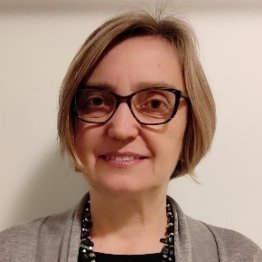
Prof. Dr. Fabrizia Negri
Prof. Dr. Fabrizia Negri

Fabrizia Negri is a full professor of Physical Chemistry in the Department of Chemistry “Giacomo Ciamician” of the University of Bologna.
After a Ph.D. in Physical Chemistry from the University of Bologna, she was Research Associate (1992-93) at the National Research Council of Canada (Ottawa) and a visiting scientist in 1994-95. In 1998 she received the “Federchimica award” from the Italian Chemical Industry Federation, for her computational developments on light-molecule interaction. She was appointed Associate Professor in 2001 and Full Professor in 2016 at the University of Bologna. She has served as the director of the bachelor's degree programme in chemistry and materials chemistry and is currently a member of the PhD Council in Chemistry. She is also a member of the Self-Steering Committee of Future Materials within the UNA Europa alliance. Her research interests encompass the development of computational models and their use to investigate large photoresponsive molecular architectures with extended conjugated cores (graphene nanoribbons, conjugated diradicals/multiradicals, etc), their interaction with external stimuli (photons, electric fields) and the interplay of intra and inter-molecular interactions in tuning molecular materials properties including charge transport and photoinduced processes.
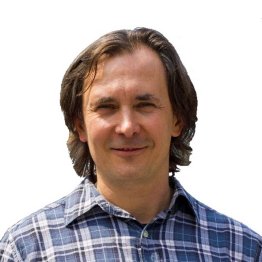
Prof. Dr. Dima Perepichka
Prof. Dr. Dima Perepichka

Dmytro (Dima) Perepichka is William MacDonald Professor of Chemistry at McGill University, Montreal. He obtained his PhD from the Institute of Physical Organic & Coal Chemistry in Ukraine, and worked as a post-doctoral fellow at University of Durham (with Martin Bryce) and UCLA (with Fred Wudl) before starting his group at INRS-Energy and Materials in Varennes, Canada in 2003. In 2005, he moved to McGill University (Montreal) where he is currently Sir William MacDonald Professor of Chemistry and Chair of the Chemistry Department. His group focuses on synthetically driven research of p-electron functional materials, including small molecules, polymers, 2D materials and COFs, and understanding of their behavior in optoelectronic devices.
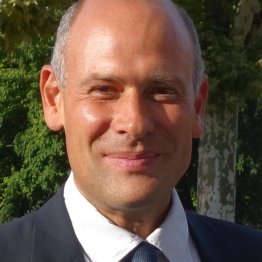
Prof. Dr. Paolo Samori
Professor at Université de Strasbourgh
Director of the Institut de Science et d’Ingénierie Supramoléculaires (ISIS)
Prof. Dr. Paolo Samori

Professor at Université de Strasbourgh
Director of the Institut de Science et d’Ingénierie Supramoléculaires (ISIS)
Paolo Samorì is Distinguished Professor at the Université de Strasbourg and Director of the Institut de Science et d’Ingénierie Supramoléculaires (ISIS). He is Member of the Académie des technologies, Foreign Member of the Royal Flemish Academy of Belgium for Science and the Arts (KVAB), Fellow of the Royal Society of Chemistry (FRSC), Fellow of the European Academy of Sciences (EURASC), Member of the Academia Europaea, Fellow of the Materials Research Society (MRS) and Senior Member of the Institut Universitaire de France (IUF).
He has obtained a Laurea in Industrial Chemistry at University of Bologna in 1995. In 2000, he has received his PhD in Chemistry from the Humboldt University of Berlin. He has been permanent research scientist at the CNR of Bologna. He has published 430+ papers on nanochemistry, supramolecular sciences, materials chemistry with a specific focus on 2D materials as well as functional organic/polymeric and hybrid nanomaterials for applications in optoelectronics, energy and sensing.
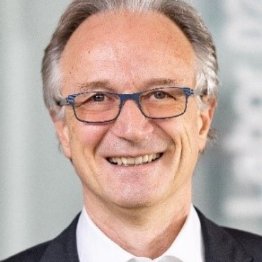
Prof. Dr. Frank Würthner
Professor or Organic Chemistry at University Würzburg
Founding Director Center for Nanosystems Chemistry
Prof. Dr. Frank Würthner

Professor or Organic Chemistry at University Würzburg
Founding Director Center for Nanosystems Chemistry
Frank Würthner received his education in Chemistry at the University of Stuttgart (doctoral degree 1994 with Franz Effenberger) and carried out postdoctoral research at MIT in Cambridge/MA (1994/1995 with Julius Rebek, Jr.). After two years at BASF and five years at the University of Ulm (Habilitation in 2001) he became chair professor of Organic Chemistry at the University of Würzburg in 2002. Here he has served as head of the Institute of Organic Chemistry, dean of the Chemistry Department and founding director of the Center for Nanosystems Chemistry. His main research interests include the synthesis of pi-conjugated molecules and functional dyes, their application in organic electronics, photonics and photovoltaics, the construction of complex supramolecular architectures composed of pi-scaffolds, the mechanistic elucidation of self-assembly processes, and the investigation of light-induced processes in dye-based nanosystems. He has published more than 500 papers and is listed since 2014 regularly among the highly cited scientists. He is an elected member of the German National Academy of Science Leopoldina and the Bavarian Academy of Sciences, as well as a Fellow of the Royal Society of Chemistry. Since 2015 he is associate editor of Organic Chemistry Frontiers (RSC). His awards include the Arnold-Sommerfeld-Prize of the Bavarian Academy of Science (2002), an ERC Advanced Grant (2017), the Ta-shue Chou award of Academia Sinica in Taiwan (2018), and the Adolf-von-Baeyer Medal of the German Chemical Society (2019).



